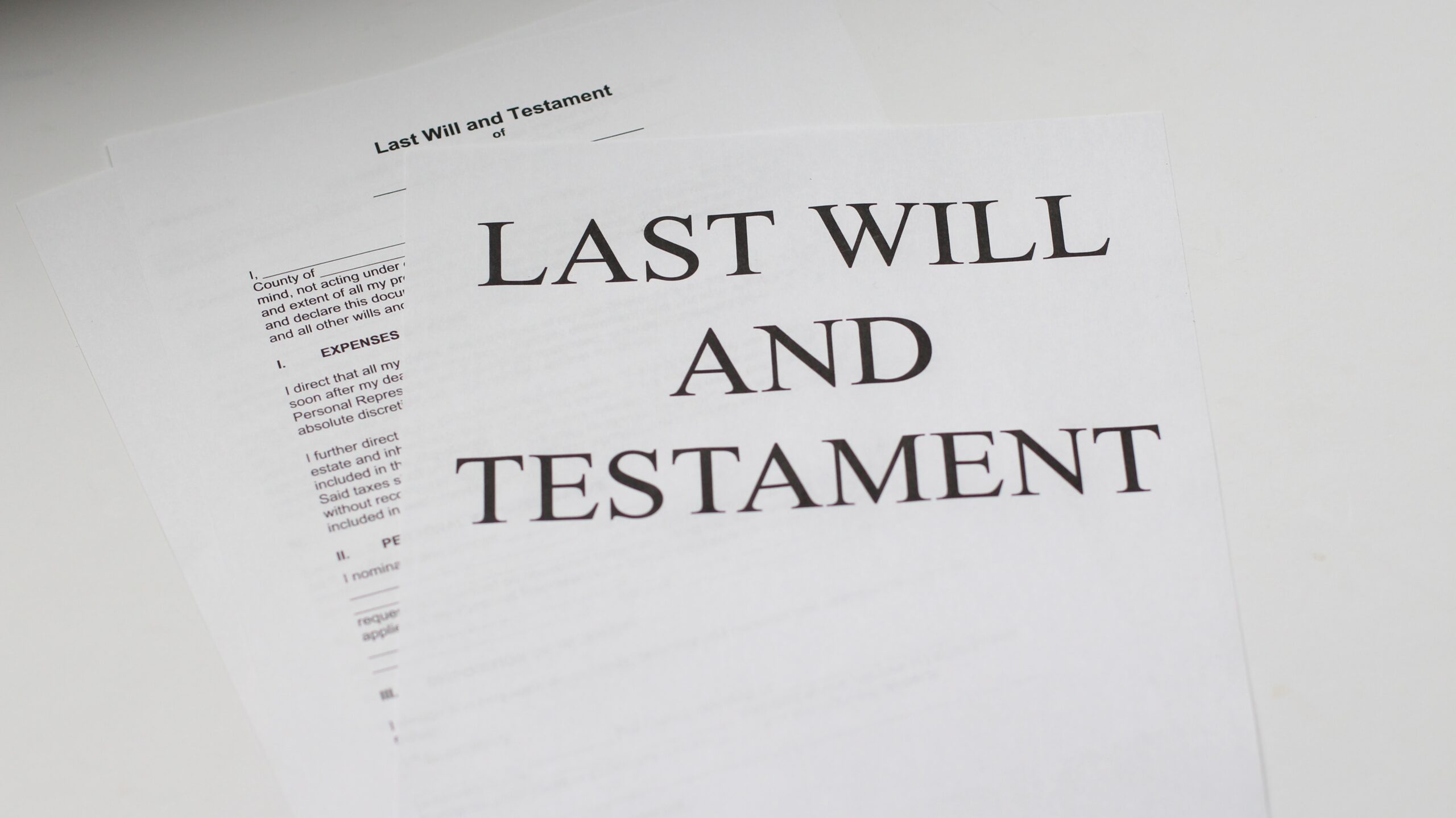Wills: 8 Life Events That Should Encourage You to Create Your Will

There are many cases of famous individuals passing without a will. Perhaps the most famous is the 16th President of the United States, Abraham Lincoln. After his untimely death, it was discovered that Lincoln did not have a Will, and his eldest son Robert had to deal with the intestacy processes. Thankfully Robert had Supreme Court Justice David Davis help him administer the Estate for free, but if you aren’t personal friends with a SCOTUS Justice, you may not be so lucky.
At some point everyone should create a Will, or your probate assets pass according to the Intestacy statutes of the State you reside in. (Non-probate assets aren’t controlled by your Will, another reason to work with an Estate Planning attorney and make sure everything is account for.)
A Will by itself is not enough for an adequate Estate Plan, but it does get your assets where you want them to go when you pass, and it simplifies and speeds up probate for your loved ones. (I recently spoke with a friend in Virginia – his Uncle’s estate has been in probate for 2 years because he didn’t have a Will.) The difficult question is when you actually need to get moving on it.
There is no hard and fast rule on when you should make your Will. But the reality is you never know when it’s going to be needed, and if you haven’t created it in advance it’s already too late. Because you can’t predict tragedy, you should make sure you’re prepared in advance. A good general rule of thumb is that big life events should guide you in this area. Here are 8 major life events that should get you thinking about your Will.
1. After You Get Married – or Divorced.
Getting married is one of the biggest reasons to create your will. You want to make sure that your assets actually go to your spouse, which means making sure that they don’t pass according to the complicated Pennsylvania Intestacy statutes. If you don’t, you spouse might only get half of your assets – the rest may go to your parents, or need to be held in a trust for your children. And even if they ultimately get to your family, intestacy makes the process longer, and therefore more expensive.
If you get divorced, you will want to create a new Will immediately. If not, your family will likely be involved in expensive litigation – whether your Ex is suing to get a share of the estate, or your family is suing to stop that from happening. (Who receives the assets that go to “My Spouse Dorothy Smith” when you are no longer married to Dorothy Smith?)
Remarriages in particular can make Estate Planning very important. If you or your spouse have previous children, you want to make sure that your spouse is taken care of, but that your children receive an inheritance as well. And if your previous children are still minors, you need to make sure that their inheritance is protected from any bad actors. A good estate planning attorney will carefully go over situation to make sure they catch any potential dangers and account for them.
2. Before the Birth or Adoption of Your First Child.
Once you have children, it is very important to have your Will in place. First, not only can you make sure your assets get to your children if you pass, but you can protect those assets until your children are ready to handle the inheritance. If you have minor children, your Will should create a Minor’s Trust to protect those assets from potential creditors and irresponsible spending.
And a Will doesn’t just determine where your assets go; it is also where you make nominations for who takes care of your children if you pass. Without these nominations in place, the court will have to decide who becomes the Guardian of your children. Not only may this not be the person or persons you would like, but it can create within your family if there is a disagreement as to who should take care of your children.
An Estate Planning attorney should also work with you to create guidance for the guardians, so they can raise your children with the values that are important to you. They should also counsel you on how to have conversations with your loved ones so that your children can have good relationships with all of their family.
There’s no reason to wait until after your child is born, however. A good Will accounts for all your children, even if you don’t have any yet. You might think you will have more time to plan after the birth of a child – I can tell you from perosnal experience that you won’t. By taking the time to create your Will beforehand, you remove a burden you won’t want to deal with afterwards.
3. When Your Children Become Adults
As your children grow and move out, it is worth reviewing your Will to make sure that it still matches up with your wishes. In particular, you may want to designate an adult child as your Executor, and as the Guardian of your minor children. If your adult child is ready to serve as your Executor, you don’t need to burden your parents or a family friend with the administration of your Estate.
If you made your guardianship nominations years prior, your children may have to go to court to try and keep the family together. Even if everyone agrees on the best guardian, conflicting nominations in your Will make it a more complicated process. By simply reviewing and updating your documents ahead of time, you can save your loved ones a lot of difficulty.
4. As your Children Get Married.
We all hope that our children will marry upstanding, responsible people. Often times this is true, and their spouse becomes a loved member of the family. In that case, you may not need to update your Will, although doing a quick review with an Attorney may still be a good idea.
Unfortunately, though, this isn’t always the case. If you feel like you can’t trust your son- or daughter-in-law to be prudent with their finances, or to take good care of the children in the event of a tragedy, you should work with an Attorney to protect your grandchildren’s inheritance.
There are more complicated questions as well. For example, if you nominated your eldest child as the Guardian of your minor children, would you want your son- or daughter-in-law to continue as Guardian in the event that your child passes away. Or do you want that Guardianship to pass to someone else? These are all important questions which should be considered when reviewing your Will.
5. When You Start a Business.
If you choose to start a new business, it is important to account for that in your Estate Plan. Family businesses mean different things to different people, and you need to make sure you know how you want that business to pass down. You may choose to pass the business on to your spouse or children, or you may have a partner who wants the right of first refusal to purchase your share of the business.
Even if the business is simply going to be sold at the time of your passing, succession planning should be done ahead of time to increase the value of that business when it comes time to sell it. Starting a new business is a major decision, and like all major decisions it has consequences you need to consider when it comes to your Will.
6. If You Move to a New State.
You may not necessarily need a new Will when you move to a new state, but it is very important to review the document with a local Estate Planning attorney. Because each State creates it’s own laws around probate and estate, the rules of the new state might require different documents be drawn up to maintain your wishes. For example, if you move from an Equitable Distribution state to a Community Property State, your assets may not pass how you would like them to. And each state may also have its own Elective Share, which is how much of your assets your spouse is entitled to, even if it isn’t in your Will.
There may also be tax consequences – positive or negative – for moving to a new state. Pennsylvania has an Inheritance Tax, and it’s one of the few states that does. Whether you are moving into or away from a state with some sort of death taxes, you should review your Will to make sure your estate isn’t going to pay more than necessary in taxes.
7. After the Death of Loved Ones.
A well drafted Will takes into account what happens if beneficiaries predecease you. Still, if someone close to you passes, you want to make sure you know how that effects your Will. If your nominated Executor or Guardian passes away, you need to make sure there is some else who is willing and able to serve instead. If a close friend named as a benficiary predeceases you, you need to know where that money will go.
8. During a Major Illness.
There are a few reasons to review your Will if you are diagnosed with major illness. If you have a neurodegenerative disease, such as Alzheimer’s, at some point you may no longer be able to create or amend your Will. You need to make sure that you update it early, before someone could successfully challenge it in court due to a lack of capacity.
You also want to make sure that you are be adequately taken care of, but don’t want to empty your Estate and have nothing to pass on. Careful planning can allow you to receive Medciaid while not depleting your Estate. If you expect you may require skilled care, you should speak to an Estate Planning Attorney early to make sure that you don’t needlessly deplete your assets.
Hiring an Estate Planning Attorney
If you’ve already crossed some of these life events, but don’t have a Will in place, you should contact an Estate Planning Attorney today. And if you do have an Estate Plan in place, make sure you are reviewing it regularly to make sure it still matches your wishes.

If you are ready to begin a conversation about your estate plan, I am happy to have a free, no obligation, consultation with you. You can call me anytime at 215-360-3139, or click the button below to schedule a time for me to call you.

If you are ready to begin a conversation about your estate plan, I am happy to have a free, no obligation, consultation with you. You can call me anytime at 215-360-3139, or click the button below to schedule a time for me to call you.


